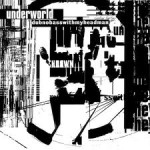When Danish punks Iceage first exploded onto the scene they sounded like a bunch of feral kids who had only ever clapped their ears on hardcore and punk records. Their 2011 debut was a repeated attack on the senses, and it’s one of the best punk débuts ever. In 2013 they returned with You’re Nothing, and while it wasn’t as fast and frenetic as their debut, it was still a powerful thirty-five minutes. Elias Bender Rønnenfelt’s vocals had started to shift from guttural, hardcore shouts to more definable vocals, with his style becoming reminiscent of Ian Curtis. Hand in hand with this evolution, Iceage began to shift toward a post-punk sound.
This shifting sonic palette is even more evident on their new album Plowing Into the Field of Love. Album opener ‘On My Fingers’ starts with a call and response from the drums and guitars; then Rønnenfelt’s vocals kick in, sounding somewhere between Curtis and Nick Cave, they carve their way through the music. At first, this new vocal style sounds slightly at odds with the music; however by the time the track ends they have merged successfully. That Cave connection carries through to lead single ‘Glassy Eyed, Dormant and Veiled’, which is a re-working of ‘The Mercy Seat’ (albeit with different lyrics). On this track we hear Iceage’s aggressive playing start to come to the fore: it’s a slow burner that builds to a maelstrom of noise confusion at the end. Ultimately, though, this is the weakest song on the album, as it sounds like Iceage are imitating rather than innovating. ‘The Lord’s Favourite’ meanwhile is a straight-up rocker that calls to mind that band in the backroom of the pub who get you wondering, hey, who is that? It starts like soundcheck, then bursts into a Pogues-esque jig, to call it rambunctious is an understatement.
The record’s stand-out track is ‘Simony’, which begins with a near -identical riff to Sonic Youth’s classic Dirty Boots, before lurching into Joy Division territory, characterised by a surging bass-line, machine-gun drums and a droney vocal. The production here is flawless; the way the different layers rise to the surface, only to descend when their time is over. The interplay between the bass and acoustic guitar in the bridge is one of the stand-out moments on the album, and as one of the fastest (and hardest) tracks on the album original fans will have something to salivate (and mosh) over.
While Plowing Into the Field of Love wears its influences very much on its sleeve, that doesn’t take anything away from the album’s enjoyment. This is the sound of band evolving and, in places, coming into their own; at the same time, there’s just enough of the original blueprint not to alienate their fan-base. There will of course be those demanding more songs that come in at the one-and-a-half minute mark, with less pronounced vocals, but what we get instead are 12 well-written and well-crafted songs, which is, ultimately, more important than how fast can you play and how loud can you scream.
[Rating:3.5]




